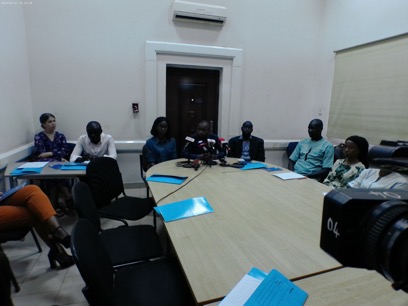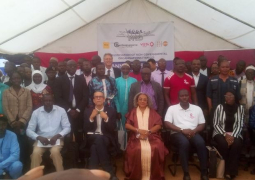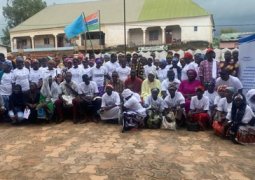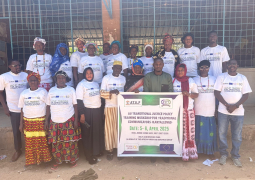
Mam Jarra Marega, programme manager, National Mental Health Programme at the Ministry of Health, was speaking during a day’s orientation on the draft Mental Health Bill held at CIAM conference Hall, Kanifing.
It would be recalled that, The Gambia since the onset continues to rely on the outdated ‘Lunatic’ Detention Act of 1917 as the primary tool when dealing with cases of mental health disorders in the country.
It was against that backdrop that the Ministry of Health developed a new draft legislation in 2017 in line with WHO checklist in developing mental health legislation and other international human rights instruments.
Presenting on the overview of mental health in The Gambia, Marega acknowledged that the programme coordinates and facilitates all mental health activities within The Gambia.
She disclosed that mental health conditions are the single largest cause of disabilities in the world and that it is such that it is an international health concern that is gaining considerable attention.
In view of this growing trend, mental health services in The Gambia is composed of three components; Inpatient; outpatient and community services, she stated.
The In-patient treatment, she went on, is not possible for rural patients and they must be managed in their communities.
“These components work collaboratively in providing quality and accessible Mental health services to the general public.”
She nevertheless, lamented the existing gaps between the number of people affected and those receiving mental health treatment in The Gambia, noting that mental health services in the country were decentralised in 2018, and back to centralisation in 2020/2021.
However, despite the challenges, the unit made significant achievements, she stated.
“In 2016, five MH nurses and a few general nurses were trained on mhGAP. In February 2023, we reviewed and adopted the updated version of mhGap 2.0.”
The overall objective, she said, is to mobilise resources for robust mental health interventions; improve on all service standards including treatment and human rights conditions in the Tanka-Tanka Department of EFSTH.
Bakary Camara, a matron at Tanka Tanka, also made a presentation on the services offered by Tanka Tanka Psychiatric Centre, calling the need for change of attitude towards people affected with mental disorders.
Camara observed that sometimes public reaction and approach especially towards those with mental disorders tend to make their health condition even worst.
He outlined some of the services offered at the centre as well as challenges in dealing with people affected by mental disorders.
Momodou Gassama, WHO health promotion specialist, reminded that everyone is vulnerable to mental health problems regardless of one’s status.
To that end, he outlined the need for strong community participation and to do away with all forms of discrimination and stereotype.
Gassama equally called on the media to continue their advocacy and always report on health issues in the country.
While highlighting the serious trend of this growing health burden globally, he disclosed that approximately one in every 8 persons worldwide has mental condition or disorder.
Read Other Articles In National News

TANGO AGM calls for renewed civic advocacy amid growing challenges
Aug 29, 2025, 11:40 AM




